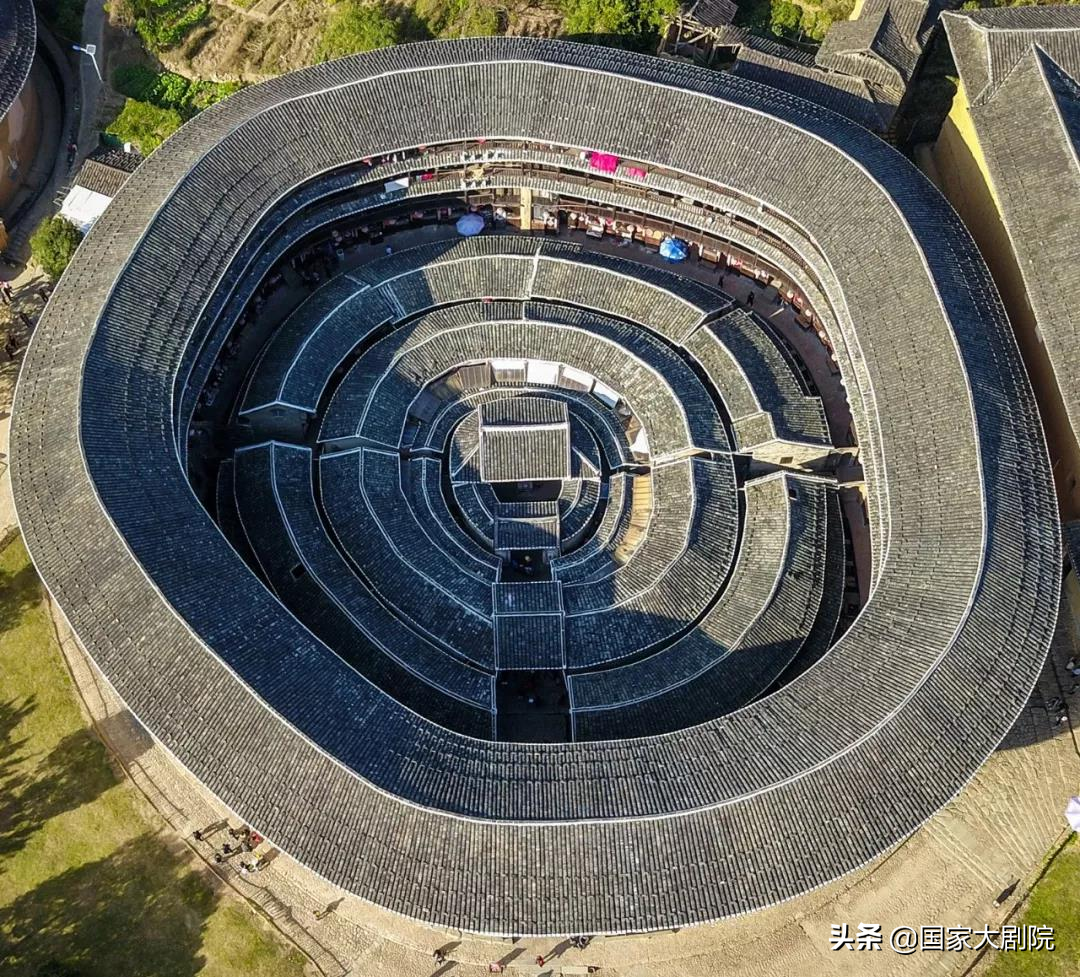Video loading...
On the general score of "Tulou Echo", the composer Liu Xiang wrote in the inscription:
"You have come from ancient times and run toward the future, like the waters of the rolling Yellow River, stubbornly and tenaciously, into the sea. "—To the Hakka family
Professor Zheng Xiaoying, a conductor, once wrote: "My soul touched by tulou culture, the aesthetic orientation of the composer who can write good music, the sense of responsibility of the conductor who leads the music army to perform the excellent symphony works of the motherland, the insistence of not retreating no matter what difficulties and grievances I encounter, is just from the simple original intention that 'beautiful music should be shared with the public and should serve the people' that I planted since I was a young man!" "A private orchestra that has no instructions from above and does not have any special funds, in order to disseminate excellent Chinese symphony, consciously and voluntarily shouldered the heavy burden and walked an uneven and extremely valuable road." When evaluating the work "Tulou Echo", Professor Zheng Xiaoying said: "It embodies a kind of 'Chinese soul' of our Chinese nation that is united, struggles, remembers its roots, and has a broad mind."
In this online class of the Classical Art Lecture Hall, we invited the famous conductor Professor Zheng Xiaoying to interpret the Chinese symphonic poem "Tulou Echoes", which has been staged more than 70 times around the world, to lead everyone to understand the interesting story behind the work, listen to the "leaf blowing" in the third movement, and taste the Chinese flavor contained in this Chinese symphony masterpiece.
1. What is "Fujian Tulou"?

Tulou pictures
Tulou photo
Fujian Tulou originated in the Song and Yuan dynasties and matured in the late Ming, Qing and Republic of China periods. The tulou is based on stone, with raw soil as the main raw material, interlaced rammed in layers, with bamboo and wood as the wall bone pulling, and the T-shaped intersection is anchored with wood. Tulou is distributed in Fujian and Guangdong provinces, and is most famous for Yongding Tulou in Longyan City and Nanjing Tulou in Zhangzhou City.
On July 6, 2008, Fujian Tulou was officially inscribed on the World Heritage List, consisting of 46 tulous in the "six groups and four floors" of Yongding, Nanjing and Hua'an counties in Fujian Province. These tulou are either square or round, mainly circles, sprinkled like pearls among the green waters and green mountains of southwest Fujian.
Second, the premiere of "Tulou Echo"
The premiere of "Tulou Echo"
On November 21, 2000, the first symphonic poem with Hakka epics as the content of the content of the "Tulou Echo" (composed by Liu Yuan) was played by the Xiamen Philharmonic Orchestra, the first "private office assistance" in China, at the 16th World Hakka Friendship Conference for thousands of Hakka representatives from all over the world. Not in the concert hall, not in the art venue, but in the Longyan Gymnasium, which was thunderously applauded by the audience.
Third, the magical "leaf blowing" in "Tulou Echo"
Leaves blow
The Tang Dynasty poet Bai Juyi wrote in "Yang Liuzhi":
The little girl of the Su family used to be well-known, and Yang Liu had a special affection before the wind.
The stripping plate is made into a silver ring, and the curly leaves are blown to the sound of a jade flute.
More than a thousand years ago, leaves appeared in Chinese court music. When Japan studied the history of blowing leaves in China, it found a stone statue of leaf blowing in the Yongling Museum in Chengdu. In the thirteenth cave of Dunhuang Mogao Grottoes, there are also stone statues of folk blowing leaves. In the "Preliminary Investigation of Folk Music in Western Fujian" (by Wang Zhuomo), it is mentioned that the most distinctive works of art in western Fujian are "bamboo board song" and "leaf blowing". Later, when composer Liu Xiang composed "Tulou Echo", he wrote these two performance forms into this work.
Leaf blowing is a very important art species in the long history of our Chinese national music, and it has been well preserved in Hakka. Leaf blowing has been lost in many places, and there are very few people who can play leaves very well. "Tulou Echo" shows the leaf blowing to the world, lets the world understand Chinese art and Chinese culture, and attracts and applauds China's characteristic art forms.
Biographies of the keynote speakers Zheng Xiaoying, born in 1929, is a famous conductor, music educator and social activist, former chief conductor and lifelong honorary conductor of the Central Opera House, former professor and director of the Conducting Department of the Central Conservatory of Music, the first female conductor of opera-symphony in New China, and the first Chinese to appear on the podium of foreign opera houses. Conductor Zheng Xiaoying was the musical director of China's first volunteer orchestra,"Philharmonic Girl" chamber orchestra; she was the artistic director of the Xiamen Philharmonic Orchestra for 15 years. She has successfully conducted performances in more than 20 countries; she has been awarded the French Medal of Honor for Literature and Arts and two Medals of Honor for Friendship between Russia and China; and she has been invited by the World Choral Council to serve as a permanent member of the Presidium of the Honorary Arts of the World Choral Competition. She has won the Special Contribution Award for Chinese Opera, the Wenhua Conducting Award, and the Lifetime Achievement Award of the Golden Bell Award of the China Federation of Literary and Performing Arts and the Chinese Music Association.
Ministry of Education/Planning for the Popularization of Arts at the National Centre for the Performing Arts
Zheng Xiaoying/Speaker
Zhao Yifei/Finishing